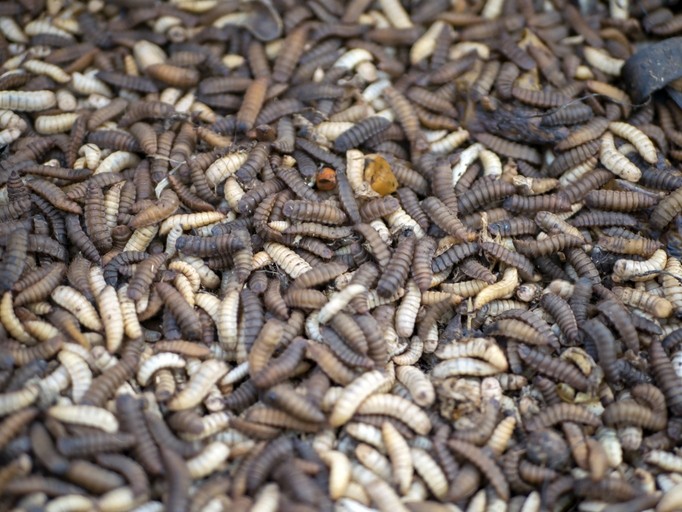Is insect farming’s ‘green’ image overblown?

Insect farming has been promoted to investors, policymakers, and consumers as a sustainable alternative to other animal-derived edible protein, pet food, and animal feed. The ability to use food waste as farmed insect feed, as part of a circular economy, is a central pillar of this argument.
But this claim is exaggerated, according to a new paper published in the journal Sustainable Production and Consumption. It claims that the industry makes very little use of food waste to feed insects, instead relying primarily on more expensive, higher-quality ingredients such as commercial feed or agricultural co-products suitable for direct consumption by other animals or, in some cases, humans.
As the industry overwhelmingly produces pet food and farmed animal feed, the use of high-quality ingredients means that insect farming usually inefficiently adds a new level to the food chain.
There are significant practical barriers to using waste as a feed source in the future, including nutritional and logistical difficulties, according to the paper.
There are potentially serious food safety concerns associated with using waste as insect feed. For example, the UK Food Standards Agency specifically called out this public health risk in the context of insects in a 2023 paper, explaining that “there is a threat that insects can be disease vectors particularly if reared on waste, and that using insect processed proteins may lead to disease outbreaks. Strict legislation on waste substrates, insect processing, and feeding strategies are needed to minimise feed and food safety risks from insects as vectors of diseases.”
And were insect farming companies to make greater use of food waste, they might have to compete with other sectors like biogas production for the same waste, driving up costs for both sectors.
Insect farming ‘struggling’ to food waste as a significant feed source
The authors conclude that the insect farming industry’s claim that it will provide a unique solution to increase the food system’s sustainability by relying on food waste as a significant feed source is likely unfounded. At best, the effectiveness of waste as an insect feed and its future impact on the circularity of the food system is still at the design stage. This assessment raises questions concerning the environmental sustainability and economic viability of insect farming.
Dr. Dustin Crummett, a co-author of the paper and executive director of The Insect Institute, said: “Early studies promoting the environmental and economic potential of insect farming assumed that the industry would rely heavily on food waste that would otherwise be squandered.
“However, for reasons highlighted in this new research, this has not proven feasible in real-world, large-scale insect production, and there are significant barriers to its feasibility in the future.
“Investors, policymakers, environmental organisations, and the public should be wary of under-evidenced or over-optimistic claims and mindful of economic and environmental risks in the sector.”
To be fair, insect companies are aware of the challenges. The CFO of leading insect company InnovaFeed has stated “...it is extremely difficult to build an industry with a consistent quality product if your main input has a high level of variability… The aquaculture market that we are targeting need large volumes with a consistent quality. And the quality of the larvae depends on their feed. The one player who tried to produce at scale was Agriprotein, the South African company, which, unfortunately, went bankrupt. There were probably different reasons for that but adding the complexity of variability of feedstock to producing at scale was probably one of the reasons.”
There are regulatory barriers to using waste in many jurisdictions
The scientific understanding needed to develop best practices in this sector also remains underdeveloped, meaning that there also are currently significant regulatory barriers to using waste in many jurisdictions. The industry is lobbying to loosen these, but adequately managing risks may ultimately necessitate maintaining bans on some potential sources of waste as insect feed and developing strict regulations around testing, handling, and treatment for others.












